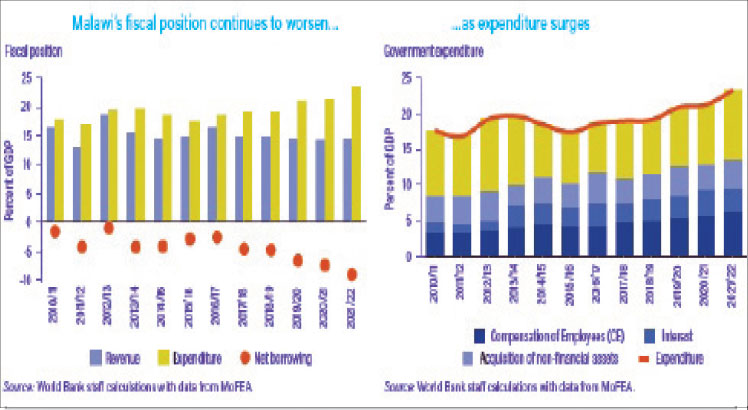International Monetary Fund (IMF) has asked authorities to ensure that the monetary policy framework centres on containing direct and second-round food price inflationary pressures and as well controlling overall inflation.
In its latest paper titled ‘Staple Food Prices in Sub-Saharan Africa’, the global lender said that in addition to global food prices, the share of staples in food consumption and real effective exchange rates is driving changes in local staple food prices.
The IMF’s assessment on 15 countries in sub- Saharan Africa, including Malawi on the five most consumed staple foods in the region such as maize, cassava, palm oil, rice and wheat, said that food prices are higher in countries with weak monetary policy frameworks.
Reads the paper in part: “Food prices tend to be higher in countries with weaker fiscal management and elevated public debt. A mix of fiscal, monetary and structural reforms could thus help lower food inflation.
“On the other hand, improving public financial management could help free up resources for investment in well-targeted social assistance programmes or in climate-resilient infrastructure and this could help stabilize prices.”
The IMF has also urged authorities to ensure that agricultural inputs such as seeds and fertilisers are cheaper by introducing structural and regulatory reforms that promote fair competition as well streamlining trade procedures and better leveraging research and development to boost agricultural innovation.
In Malawi, maize, as part of the food component, accounts for about 52 percent of the consumer price index, an aggregate basket of goods and services used in computing inflation.
Meanwhile, Malawi’s year-on-year headline inflation rate for August 2022 rose to 25.5 percent triggered by a rise in food and non-food prices.
National Statistical Office figures show that food inflation went up 33.4 percent, a rise from 32.5 percent in the previous month while non-food inflation rose to18.2 percent in August from 17.5 percent in the previous month.
Speaking in an interview on Monday, economic statistician Alick Nyasulu said that rising inflation is a cause for concern and calls for a reflection on policy issues.
He said: “As is often the case, there is this tend to force central banks all over the world to increase interest rates. It will be interesting to see how the monetary policy will decide to increase the policy rate which under such instances tend to go up to tame the rising inflation.
“On a different note, globally, the dollar is rising since the Federal Reserve increased rates and the current foreign exchange shortages may give the policy committee to reflect on exchange rate though devaluation seems unlikely even though fundamentals may suggest so.”
Currently, the monetary policy, which guides the management of money supply and interest rates to meet macroeconomic objectives, is for now meant to support economic recovery from the Covid-19 crisis and stimulate further growth.
RBM has, however, admitted that the policy environment needs a review and is set to brainstorm issues affecting monetary policy with all relevant sectors of the economy to enhance monetary policy in the current policy environment.
The policy is currently at 14 percent.
The post Tame inflation pressure—IMF appeared first on The Nation Online.
 Moni Malawi
Moni Malawi 

